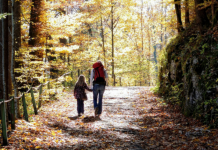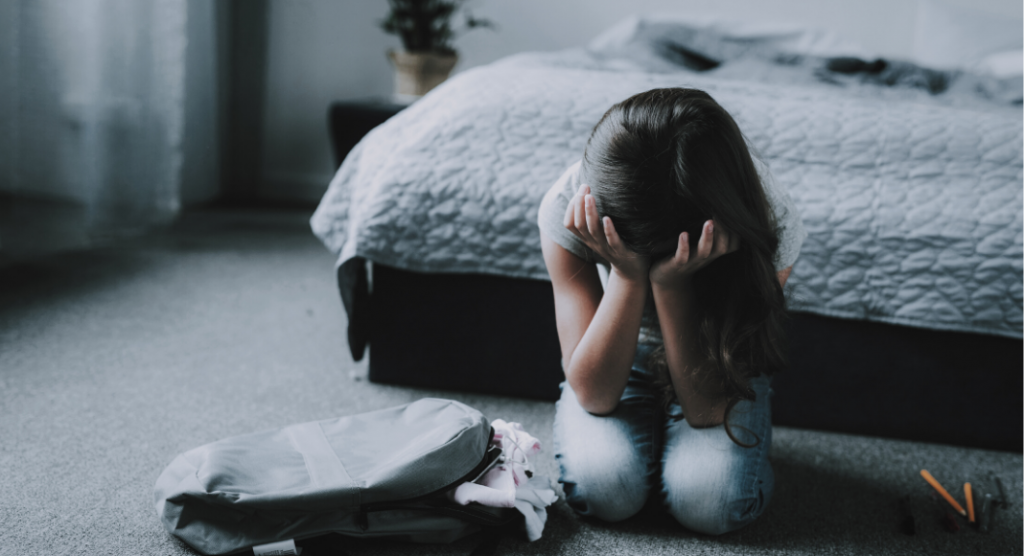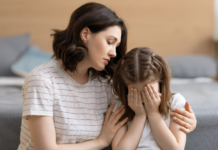What is child abuse?
There are many different opinions on what it is, but what is it really? How do we know if we see signs of it? And what to do if we see it?
For years, people have urged others to mind their business and be wary of calling the Department of Social Services (DSS), but children are not property to do whatever someone wants. They cannot run away or get help or stand up for themselves. Now more than ever, they need us to stand up for them.
While child abuse reporting has dropped during the pandemic, that is largely because 1/2-1/3 of all reports come from schools, which are not open. In fact, many places are seeing an increase in child abuse cases in the ER.
Children die – accidentally or on purpose – from abusive and neglectful parents. But it’s rare, right? Wrong.
Every day four children die from abuse in the US. Most are three years old or younger.
So What Can We Do to Stop That Without Unfairly Taking Away a Parent’s Rights?
First, here is what is defined as child abuse in South Carolina (S.C. Code Ann. 63:7):
Inflicting (OR allowing someone else to inflict) physical OR emotional injury to a child
OR engaging in acts or failing to act putting the child in a great risk of physical or mental injury.
OR committing or allowing someone else to commit sexual acts to a child
OR abandoning the child (this does not apply for children two and under at a safe haven- see Daniels Law. There is no specific age in the law for staying at home alone, but the state guideline is at least 8).
OR Encouraging, condoning, or approving delinquent acts (letting them break the law)
OR failing to provide: adequate food, water, and shelter, education, or medical care.
So…does corporal punishment count as abuse in South Carolina?
No. That is, as long corporal punishment is:
- given by a parent or someone approved by a parent,
- is not excessive and causes injury or lasting damage to the child,
- done in a reasonable manner and moderate degree,
- and done for the sole purpose of restraining or correcting the child (not to cause fear, pain, intimidation, or vent frustration).
Likewise, please note emotional abuse is included and may look like: screaming in their face, grabbing their shirt and putting a finger in their face, yelling and profanity, keeping them awake all night, insulting and name-calling, threatening to hurt them or their pets or others, destroying their most valued possessions, withholding affectation as punishment/ignoring, humiliating them.
A parent is also abusive and neglectful if they allow someone else to do this to their child, including another parent.
Background, mental health, and stressors do not make child abuse and neglect less harmful or more lawful; if you are unable to control yourself or to take care of your kids, contact the National Parent Helpline.
Here are some specific signs to look for that indicate abuse is happening you haven’t seen, and YES it important to report these signs if you see them reoccurring:
- bruises, swelling or welts in places a child cannot injure themselves
- injuries that have a strange shape
- hesitancy to get them medical care for injuries
- injuries that do not fit explanations or changing explanations
- often being absent or unprepared
- swollen ears
- not wearing appropriate clothing for a season, unclean clothes, lack of hygiene
- consistently hungry
- flinches when touched or threatened
- limps or has difficulty sitting, favors a part of the body
- fear of going home or angering a specific adult
- frequent or uncontrolled urination
- avoiding undressing
- inappropriate sexual knowledge or interest
- takes care of younger siblings
- exhibits violence
- mentions of foster care or the system especially if they have not been in it
If you feel fear for the child, it is best to do something.
And here’s what to do about abuse if you see it or signs of it:
Mandatory reporters must report any reasonable suspicion. As for the rest of us, we can:
1. Make an anonymous tip to DSS if you suspect abuse or the parent not meeting basic needs. DSS will not reveal your identity and will conduct an inspection and interviews. They will only remove a child if they find grounds, and even then their goal is reunification.
They can provide resources for the parent such as food assistance and free parenting classes. It is very, very hard, and takes at least a year but can take many to terminate a parent’s rights in this situation. This is rare. 2/3 of children will be returned to parents IF they are even taken. The majority are not removed.
2. Make a police report and let them decide. For example, if you see a child wandering in a road, see someone hit a child, or generally treat them in a way that would be a crime if it were a spouse or stranger, call the police.
However, don’t report it by calling 911. Not unless there is an on-going emergency. Call the non-emergency phone number for your local police department. Having a record of something happening may provide important info to DSS or a court later in custody cases or other. It can also help prevent a tragedy. Police need only call DSS if they see a need once they arrive.
3. Make a record of suspicious signs or interactions for later and, if possible, let the child know abuse is never okay or their fault.
Here’s what NOT to do about it:
1. Do not confront the abuser directly. In domestic situations confronting the person who is the problem usually just makes them take it out on their victim at home. Yes, professionals advise based on actual results, confronting someone may make them lash out at the victim to prevent getting called out – not stop the behavior. They could also attack you.
2. Do not interrogate or take pictures of a child without their consent.
3. Do not express doubt to a child who discloses abuse. Even if you have doubts, they chose you to go to for help, so listen and comfort, then report. If there is nothing to it, an investigation will show that.
4. Do NOT do nothing!
Finally, if you’re worried about where these children will go if they are removed, look into becoming a licensed foster home! No one can help them but their neighbors.















